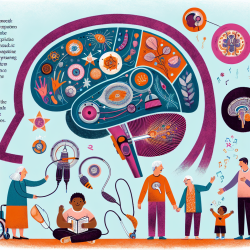Understanding the Challenges Faced by Refugee and Migrant Children
Refugee and migrant children face numerous challenges that significantly impact their mental health. The research article, "Refugee and Migrant Children’s Mental Healthcare: Serving the Voiceless, Invisible, and the Vulnerable Global Citizens," highlights the elevated risks of psychiatric disorders and other medical conditions these children encounter due to the grueling journey and stressors experienced during pre-migration, migration, and in the host country.
Key Findings from the Research
The study emphasizes the higher prevalence of mental health disorders among unaccompanied refugee children compared to those accompanied by family. Factors such as exposure to war, arduous journeys, and ongoing stressors contribute to physical, developmental, and mental health problems. The research also sheds light on the impact of acculturation stress, which can amplify psychological distress as children adapt to new cultures and languages in host countries.
Practical Applications for Practitioners
Practitioners can enhance their skills by implementing the research findings in several ways:
- Culturally Competent Care: Providing trauma-informed care that respects the cultural background of refugee children can help build trust and improve outcomes.
- Holistic Assessments: Conduct comprehensive assessments that consider the child's history, family situation, and any traumatic experiences to tailor interventions effectively.
- Community Support: Encourage community involvement and support systems to facilitate smoother transitions and reduce acculturation stress.
- School-Based Programs: Implement school-based mental health programs that address the unique needs of refugee and migrant children, fostering social inclusion and community engagement.
Encouraging Further Research
While the research provides valuable insights, there is a need for further studies to explore interventions that can improve resilience and mental health outcomes for refugee and migrant children. Longitudinal studies assessing the impact of specific interventions on educational results, community inclusion, and job opportunities are crucial.
Conclusion
Practitioners play a vital role in supporting the mental health of refugee and migrant children. By applying the research findings and advocating for further studies, we can create a more inclusive and supportive environment for these vulnerable populations. To read the original research paper, please follow this link: Refugee and Migrant Children’s Mental Healthcare: Serving the Voiceless, Invisible, and the Vulnerable Global Citizens.










